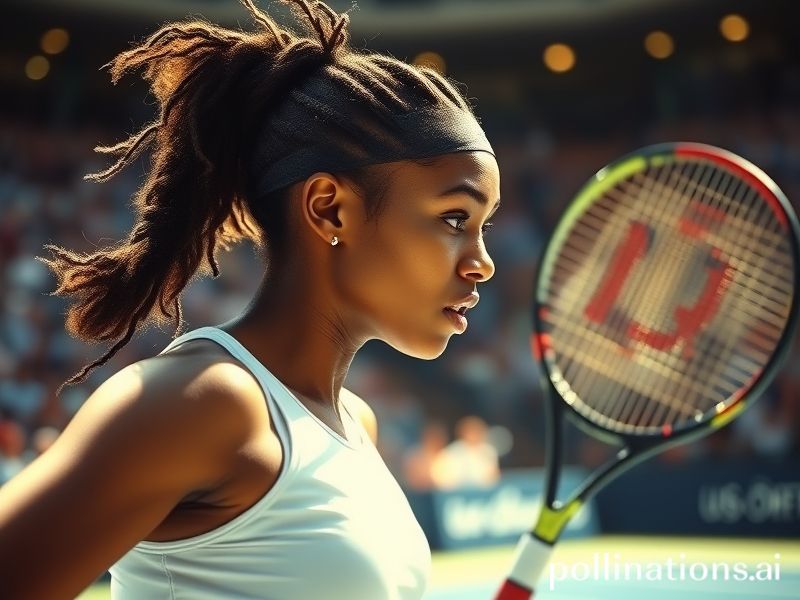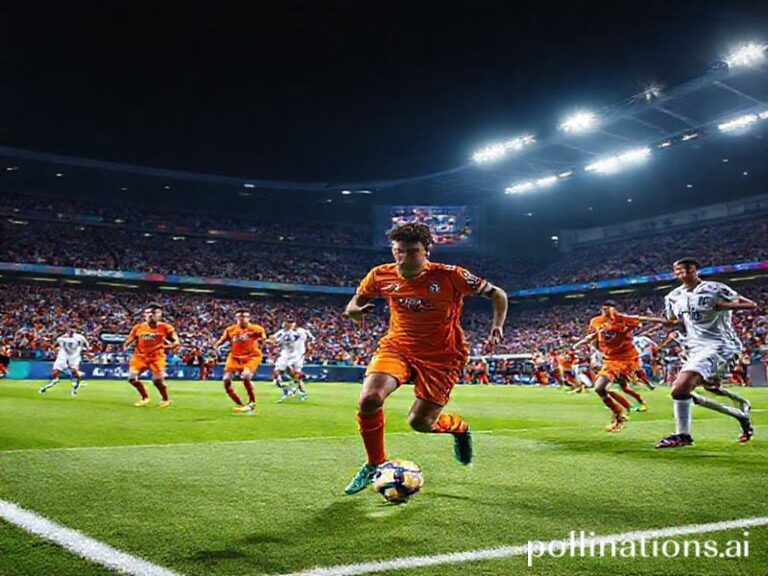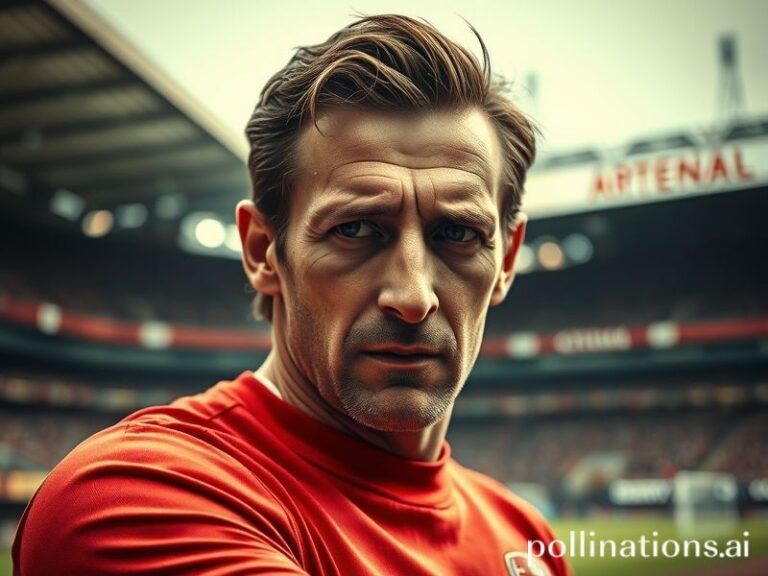Alycia Parks and the Geopolitics of a 125-mph Serve: How One American is Redrawing Tennis Borders
PARIS—Somewhere between the baguette crumbs and the hushed reverence of Court 2 at Roland-Garros, Alycia Parks is busy reminding the planet that power tennis is no longer the monopoly of Eastern European finishing schools or Floridian academies staffed by ex-Soviet taskmasters with a vitamin-B12 drip. Instead, the 6-foot-1 product of suburban Atlanta—pop. 500K, humidity 200%—has become a walking geopolitical contradiction: an American who wins on European clay, a Black woman thriving in a sport that still can’t decide whether it wants to market her backhand or her Instagram, and a first-round executioner whose serve clocks in at 125 mph, or roughly the cruising speed of a Greek taxi driver dodging another austerity protest.
Global implications? Start with the broadcast rights. Chinese state television cut to a test pattern when Parks demolished their last remaining hope in the second round, a moment analysts in Beijing delicately labeled “an unplanned intermission for patriotic reflection.” Over in London, the BBC’s commentary team—fresh from explaining why British men still can’t find the business end of a topspin forehand—pivoted to hushed awe, the sort normally reserved for a royal birth or a properly brewed cup of tea. Meanwhile, viewers in Lagos crowded around generator-powered sets, cheering every ace as if it were a personal rebuttal to the IMF.
The broader significance is deliciously absurd. In an era when world leaders weaponize trade tariffs and gas pipelines, Parks has weaponized something far more subversive: unapologetic velocity. Her matches are less sporting contests than miniature regime changes. Opponents arrive believing in the established order—rankings, endorsements, pre-match pasta rituals—and leave wondering if their passports need updating. The WTA’s marketing department, ever eager to package rebellion into a 30-second spot, now sells her as “the disruptor,” which is corporate speak for “we have no idea what she’ll do next, but please buy this visor.”
And yet the cynic’s eyebrow arches higher. Tennis, after all, is the rare arena where nationalism is encouraged but cash is universal. Parks may carry the Stars and Stripes, but her gear is stitched in Vietnamese factories, her coaching funded by a Qatari investment group with fingers in seventeen different sovereign wealth pies, and her post-match hydration supplied by a Swiss conglomerate that also manufactures artillery fuses. Somewhere in the metaverse, a branding intern is already rendering her avatar for a non-fungible highlight reel, complete with a soundtrack by a Swedish DJ who’s never seen a clay court but knows how to monetize bass drops.
Human nature being what it is—greedy, tribal, and hopelessly sentimental—various corners of the globe have already annexed her for their own narratives. French broadsheets compare her to Yannick Noah, if only to pretend the 1983 men’s title wasn’t a hallucination. American cable outlets splice her footage with Serena montages, hoping the audience won’t notice the difference between a 23-time major champion and someone who once lost in the second round of a 60K ITF in Dothan. Even the Kremlin’s sports mouthpiece grudgingly tipped a hat, reminding readers that Russia “invented power tennis” before the West “commodified it with neon shoes,” which is the sort of historical revisionism that keeps archivists awake and vodka distilleries solvent.
Of course, the real punchline waits in the locker room. Parks, still technically ranked outside the top 50, must now negotiate the sport’s exquisite contradiction: the moment you threaten the castle, the castle starts sending you dinner invitations laced with fine print. IMG has already floated a fragrance line—working title “Ace of Spades, Eau de Baseline”—while a Saudi exhibition tour dangles seven figures for a weekend’s work, air-conditioned stadiums included. She’d be mad not to cash in; we’d be madder still to pretend any of us wouldn’t do the same.
So as dusk settles over the Bois de Boulogne and the last Champagne flute is confiscated by security, Alycia Parks walks off court looking less like a tennis player than a slow-motion metaphor for 2024: young, explosive, globally branded, and entirely unsure who actually owns her future. Somewhere in the distance, a drone camera zooms out, capturing the planet’s newest superpower: a woman with a racket, a target on her back, and the distinct possibility that tomorrow she’ll be headline news in seventeen languages—none of which can agree on the pronunciation of her last name.







